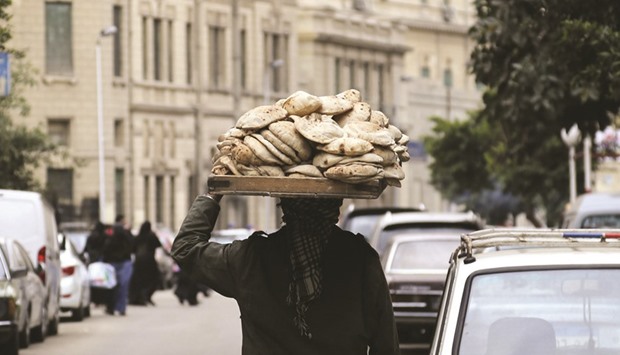Egypt extinguished hopes it will tolerate traces of a naturally occurring fungus in wheat imports into the nation, the world’s biggest buyer, after authorities rejected at least two cargoes of the grain.
The rejections are among the first reported since the Agriculture Ministry on August 28 announced a zero-tolerance policy on the ergot fungus in shipments.
They underline a revival of infighting between authorities over acceptable levels of the fungus, poisonous only in large quantities, that led to chaos in world markets earlier this year. The conflict appeared resolved in June when Egypt endorsed the global standard of 0.05% ergot levels in shipments.
Egypt’s General Authority for Supply Commodities halted loading 60,000 metric tonnes of wheat in Russia’s Black Sea port of Novorossiysk on the weekend, said two people familiar with the matter. It also rejected 63,000 tonnes of Romanian wheat, according to a statement from Romania’s Agriculture Ministry, which didn’t give date of the rejection.
GASC vice chairman Ahmed Youssef said he couldn’t confirm the Russian and Romanian cargoes were rejected when contacted by Bloomberg on Thursday.
“The issue brings demand from the planet’s largest importer into question,” Charles Clack, a Rabobank International analyst in London, said by e-mail. “The new position will very likely see Egypt’s GASC having difficulties sourcing and/or paying high premiums for its imported wheat.”
The ministry may eventually have to back down again, he said.
Romania’s Agriculture Ministry said in a statement on Friday that Egypt rejected the cargo in an attempt to depress prices. The shipment’s ergot level was below 0.05%, it said. “We think that the Egyptian importer’s practices don’t target the quality of the wheat, but it’s rather an intention to put pressure on the price of the commodity that had been already purchased,” the ministry said.
Egypt cancelled a tender for imports last week after failing to attract enough offers from traders, who fear the Agriculture Ministry’s new ruling would mean shipments could be turned down at ports.
That’s a step back to the situation early this year, when contradictory statements from competing ministries on ergot standards meant traders spurned tenders or sought higher prices to offset the risk of deliveries being rejected. Egypt turned away cargoes from companies including Bunge Ltd.
Such confusion threatens supplies in a country with a population of more than 90mn where the state buys wheat to subsidise bread and where shortages in the past have sparked food riots.
“Bread is a very important food staple in Egypt,” said Amy Reynolds, a senior economist at the International Grains Council in London. “That’s a given so any shortage will be hard to ignore.”
The country, which checks every cargo it buys at loading ports, has stockpiles to meet demand for more than six months, the Supply Ministry said on August 31. On Wednesday, Egypt added Russia and Ukraine, two of the biggest suppliers, to a list of nations whose wheat has traces of ergot.

A man carries freshly baked bread on his head along a street in Cairo (file). Confusion over ergot threatens supplies in Egypt with a population of more than 90mn where the state buys wheat to subsidise bread and where shortages in the past have sparked food riots.
